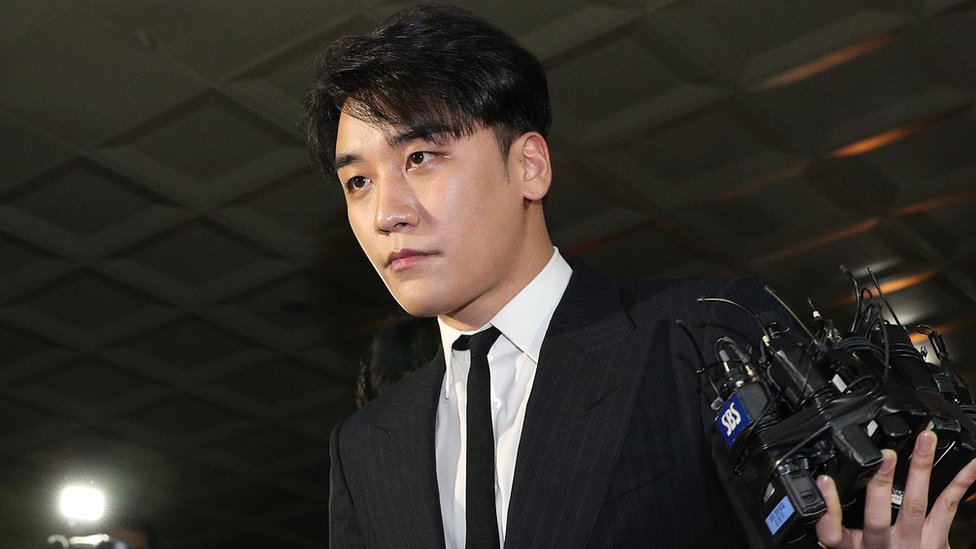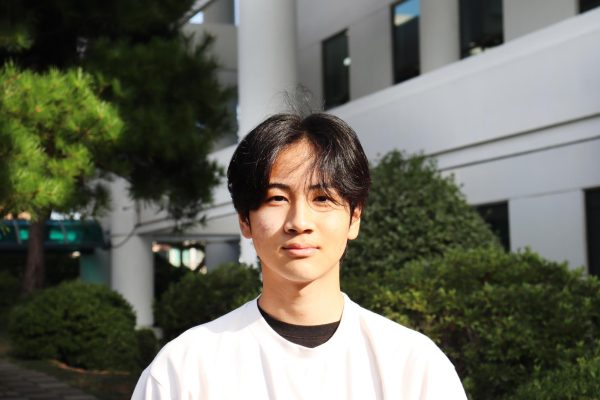On Jan. 1, an online video of Seung-ri, a previous member of the K-pop group Big Bang, went viral after he was seen hosting an event at a Cambodian club when he suddenly exclaimed that he “would bring G-Dragon here one day.” He then proceeded to perform the song ‘Good Boy’ which was written by G-Dragon and Tae-yang in 2014. This video became controversial because of Seung-ri’s past association with the Burning Sun scandal and sparked debates on how Korean Law is weak and unfair, especially towards individuals who possess huge political powers and wealth.
The Burning Sun scandal, also known as the Burning Sun Gate, was a turning point in the history of the Korean entertainment industry, revealing the dark underbelly of corruption, illicit activities, and abuse of power involving high-profile celebrities. Celebrities like Seung-ri and Jung Joon-young were found guilty of illegally recording and distributing videos of women without their consent. However, in 2019, most celebrities involved in the scandal were charged with minimal punishment; Jung Joon-young was only sentenced to 5 years and Choi Jung-hoon was only sentenced to 2 years and 6 months. Seung-ri was indicted of a total of 9 charges in January 2020, including prostitution, solicitation of prostitution, the Sexual Violence Punishment Act, the Act on the Aggravated Punishment of Specific Economic Crimes (Embezzlement), embezzlement at work, the Food Sanitation Act, habitual gambling, and violation of the Foreign Exchange Transactions Act. After serving his sentence of 1 year and 6 months, Seung-ri was released from Yeo-ju Prison in February 2023.
With Jung Joon-young being released soon this March, the Burning Sun scandal has regathered attention as not only a case that reflected the problematic sex culture within the entertainment industry but also one that displayed the weakness of Korean law, particularly towards the ones with money and political power. There is a clear need for a reform in Korean law, to be fair for all regardless of their social position, wealth, and background.
The most obvious issue within Korean law is that it is far weaker than those of other countries like the United States. While the punishment of the Burning Sun Gate is an example, there have been other instances when criminals have been punished lightly, especially compared to the weight of their crime, such as the case of Jo Du-soon. The reason behind this issue is that Korea follows the ‘Continental Law’ system that only sets the sentence for the most serious crime among the defendant’s various criminal charges as the basis, and punishes other charges by aggravating them.
As of 2020, the sentencing standard for sexual violence cases is 3 to 30 years, but the basic sentence is 2 years and 6 months to 5 years. If there is a need for aggravated punishment due to the level of harm of the crime, the sentence is set at 4 to 7 years, but if there are needs for a reduction, the sentence is set at 1 year and 6 months to 3 years. The issue not only lies in the fact that the basic standard for sentences is very short compared to other nations, but is easily reduced. Reasons for reducing the sentence of a sex offender include special sentencing factors such as being feeble-minded, having no history of criminal punishment, being under the influence of alcohol or drugs, or showing serious regret and reflection regarding the crime,
Additionally, the law is favorable towards people with money, influence, and fame. During the investigation process of the Burning Sun Scandal, multiple steps were not taken, and many speculated that it was due to the power of the YG Entertainment company, along with the status of the celebrities. Judges are more likely to believe that these higher-class individuals can be easily reformed through light punishment.
People like Seung-ri also have a huge advantage over the criminal justice system with his enormous amount of wealth; even if the court sentences him to a heavy punishment, sex crime perpetrators like him can hire expensive lawyers to argue for a reduced punishment or attempt to reach an agreement with the victims. Victims are likely to accept the offers to reach agreements as being associated with sex crimes in Korea is shunned and is considered a taboo, but also because they are aware that celebrities have many methods to escape the system regardless.
“It is kind of ironic because the K-pop industry is harsh towards newer idols, but tolerates illegal activities from the famous ones.” Dominic Hahm (11), a critic of the K-pop industry said. “For example, new debutantes are scrutinized for any small and petty action, but people like Seung-ri and the people associated with the Burning Sun scandal were not condemned in public as much.”
In the wake of sex crimes such as the ‘Cho Doo-sun incident’ and Burning Sun Gate, Korean citizens are asserting that sentencing standards must be established to severely punish sexual assault offenders. Considering the level of legal sentiment and overall awareness of Korean citizens, some argue that separate sanctions other than punishment or an increase in sentences are necessary in the current sentencing standards for sexual crimes. Recently, digital sex crimes, also known as online sex crimes, have become an issue, and there are many opinions that the sentencing standards should be supplemented to strengthen punishment. In this way, in light of the public’s feelings about the law, sex crimes should be punished strictly and it is most important to strengthen follow-up management to prevent sex crimes from recurring.


